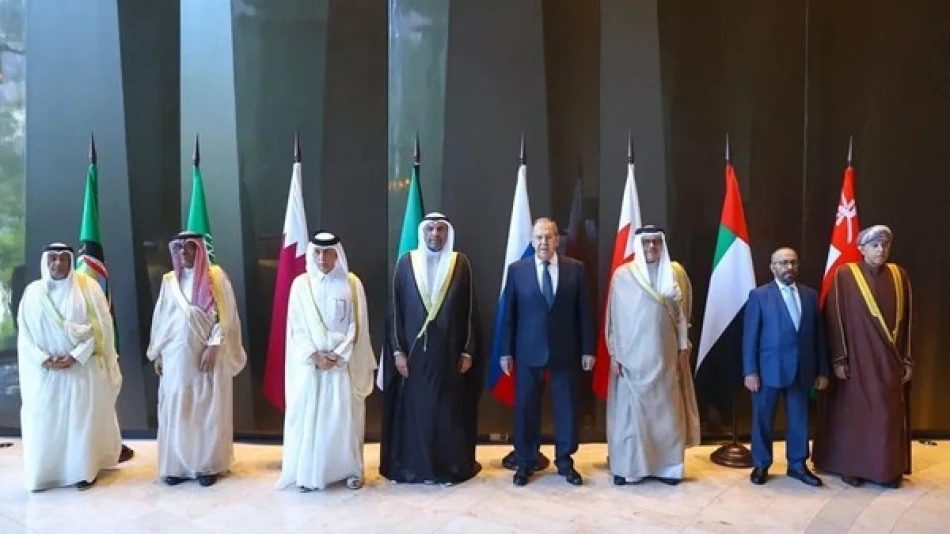
UAE Delegation Leads Strategic Dialogue Meeting with Russia
Gulf-Russia Strategic Partnership Deepens Amid Global Realignment
The UAE led a Gulf Cooperation Council delegation in the eighth joint ministerial meeting of the GCC-Russia Strategic Dialogue in Sochi, signaling a continued pivot toward deeper economic and political ties between the oil-rich Gulf states and Moscow. This partnership reflects a broader shift in Middle Eastern diplomacy as regional powers diversify their strategic relationships beyond traditional Western allies.
High-Level Diplomatic Engagement
UAE Minister of State Khalifa Shaheen Al Marar headed the Emirates delegation at Thursday's meeting, co-chaired by Russian Foreign Minister Sergey Lavrov and Kuwaiti Foreign Minister Abdullah Ali Al-Yahya. The gathering brought together foreign ministers from all GCC member states alongside the council's Secretary-General, demonstrating the collective commitment to this strategic partnership.
The ministerial format underscores the institutional nature of GCC-Russia relations, moving beyond bilateral ties to establish a comprehensive regional framework for cooperation.
Strategic Implications for Regional Power Dynamics
Energy Cooperation at the Core
This dialogue continuation comes at a critical time when global energy markets remain volatile following geopolitical tensions and supply chain disruptions. Both Russia and GCC states wield significant influence through their energy exports, creating natural synergies in market coordination and production strategies.
The partnership particularly benefits from shared interests in oil price stability and market management, with both sides having collaborated within OPEC+ frameworks to influence global energy pricing.
Diversification Beyond Western Partnerships
The sustained GCC-Russia engagement reflects Gulf states' strategic hedging approach, similar to how Singapore and other trading nations maintain relationships across different power blocs. This diplomatic balancing act allows Gulf countries to maximize economic opportunities while reducing dependence on any single partner.
Unlike the UAE's historically strong ties with Western nations, this eastern pivot demonstrates how middle powers can leverage geopolitical competition to enhance their strategic autonomy.
Economic and Investment Opportunities
For investors and multinational corporations, the deepening GCC-Russia ties create new corridors for trade and investment flows. Russian technology sectors, particularly in energy infrastructure and defense systems, align with Gulf modernization initiatives under various national vision programs.
The relationship also opens alternative financial channels and trade routes, potentially reducing reliance on Western banking systems and creating new opportunities for cross-border business development.
Regional Security Considerations
The discussion of regional and international political developments indicates both sides view their partnership as extending beyond economic cooperation into security coordination. This alignment could influence regional conflicts and diplomatic initiatives, particularly regarding Middle Eastern stability and counter-terrorism efforts.
The institutionalized nature of these dialogues suggests a long-term strategic commitment that transcends immediate political changes, providing stability for businesses and governments planning regional operations.
Most Viewed News

 Layla Al Mansoori
Layla Al Mansoori






